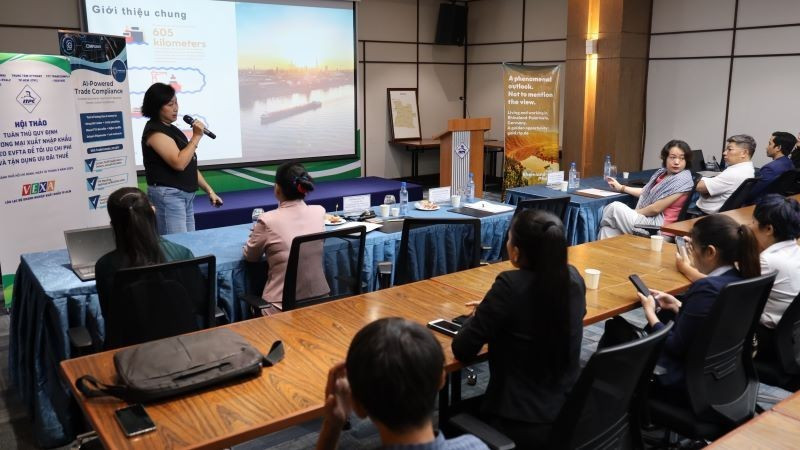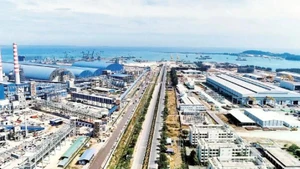At the seminar, delegates affirmed that, in the context of deepening integration, the EVFTA (Viet Nam-EU Free Trade Agreement) not only opens up many tariff preferences for Vietnamese goods but also sets stringent requirements for rules of origin, technical standards, the environment, and social responsibility.
Understanding and properly complying with these regulations will help enterprises benefit from incentives, optimise costs, reduce risks, and enhance brand value in the international markets.
Strict compliance with EVFTA regulations is a key factor for Vietnamese enterprises to truly enjoy the benefits and safeguard their position in the European market.
The EVFTA’s commitment to eliminating nearly 99% of tariff lines within seven years will create a competitive advantage for major domestic sectors such as textiles and garments, leather and footwear, wooden furniture, processed agricultural products, and seafood, especially as the EU is Viet Nam’s third-largest export market.
For instance, the tax rate for shirts exported to Germany drops from 12% to 0%, saving nearly one million USD for a shipment of one million shirts.
Similarly, the tax rate on roasted coffee decreases from 7–11% to 0%, giving Vietnamese exporters a significant competitive edge over partners from Brazil or Indonesia.
The EVFTA is considered a “golden lever” for Viet Nam’s small- and medium-sized enterprises (SMEs), but this is only true when businesses comply with its regulations.
Experts warn that even a small mistake in complying with the EVFTA could cause enterprises to lose all tariff incentives. Common issues include failure to meet the Rules of Origin (RoO), lack of valid documents, and outdated information on non-tariff measures (NTMs).
To capitalise on the advantages of the EVFTA, Vietnamese enterprises need to change their mindset. International trade is no longer merely about logistics and prices, but fundamentally about complying with the regulations and standards of the importing market.
Proactive compliance is essential for saving costs, strengthening bargaining power, and expanding market share in the EU.
















